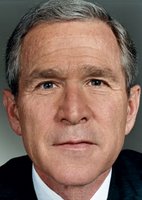 David Seaton's News Links
David Seaton's News LinksI think Americans are going to feel better if they punish the Republicans next Tuesday, but the results won't have any relevant effect on US policy. Read William Pfaff, America's finest foreign policy columnist's, analysis. DS
Abstract: Whatever happens in the American midterm elections, George Bush remains president of the United States until January 2009, and nothing will change in America’s Iraq policy unless he decides that it change. As he likes to remind his fellow-citizens, he is The Decider.Thus Democratic politicans’ arguments about what should be done are of intellectual interest only (if that is not an exaggeration).(...) The political interest of the Bush administration is still to “stay the course” for two more years, so that eventual failure in Iraq can be blamed on Bush’s successor. The Democrats want the war ended before the next presidential election, but failing that, their actual interest would be to see another Republican president elected, so they are not blamed for how the affair eventually ends. What happens to the Iraqi people, and the American soldiers fighting the war, comes last in these calculations. The implications are bad for American relations with its oldest allies, already worsened.(...) A new European Elites Survey by the University of Siena and the Compagnia di San Paolo, made available to guests at the European Trilateral Commission’s annual meeting in Turin, indicates an enormous and ominous discrepancy between popular European attitudes towards American international leadership and those of Europe’s elites.(...) The EU’s leadership has never been questioned on so large a scale. Ordinary Europeans are far less approving of close relations with Washington than are members of the European Parliament and the European Commission, still heavily committed to the American alliance. The results also call into question whether the EU, acting independently, would be capable of assuming international crisis leadership. Only 39% of the general public in Europe thinks American leadership in world affairs desirable, as against 75% support for American leadership from EU officials and 73% from European parliamentarians. Only 29% of the public wants closer EU-U.S. relations, and only 19% approves of President Bush. “Disaffection with and a reluctance to follow the U.S. have grown consistently among the general public,” the survey authors write. Only 59% of the public thinks NATO is essential to European security, as against 85% of the EU officials. The common Washington and U.S. press view that it’s the elites in Europe who are hostile to American leadership is wrong. The general public is more anti-American, by a big margin. This presumably is a judgment on Bush administration policies in Iraq and the so-called war against terror. Europe’s political classes are watching the U.S. midterm elections looking for a message of change. They blame the Bush administration for a grave deterioration in western relations with the Islamic world, plus serious internal tensions concerning Moslems in their own populations. Whatever the election outcome, they are likely to be disappointed. Neither Democrats nor Republicans have a practical program for ending the Iraq crisis. READ ALL
No comments:
Post a Comment